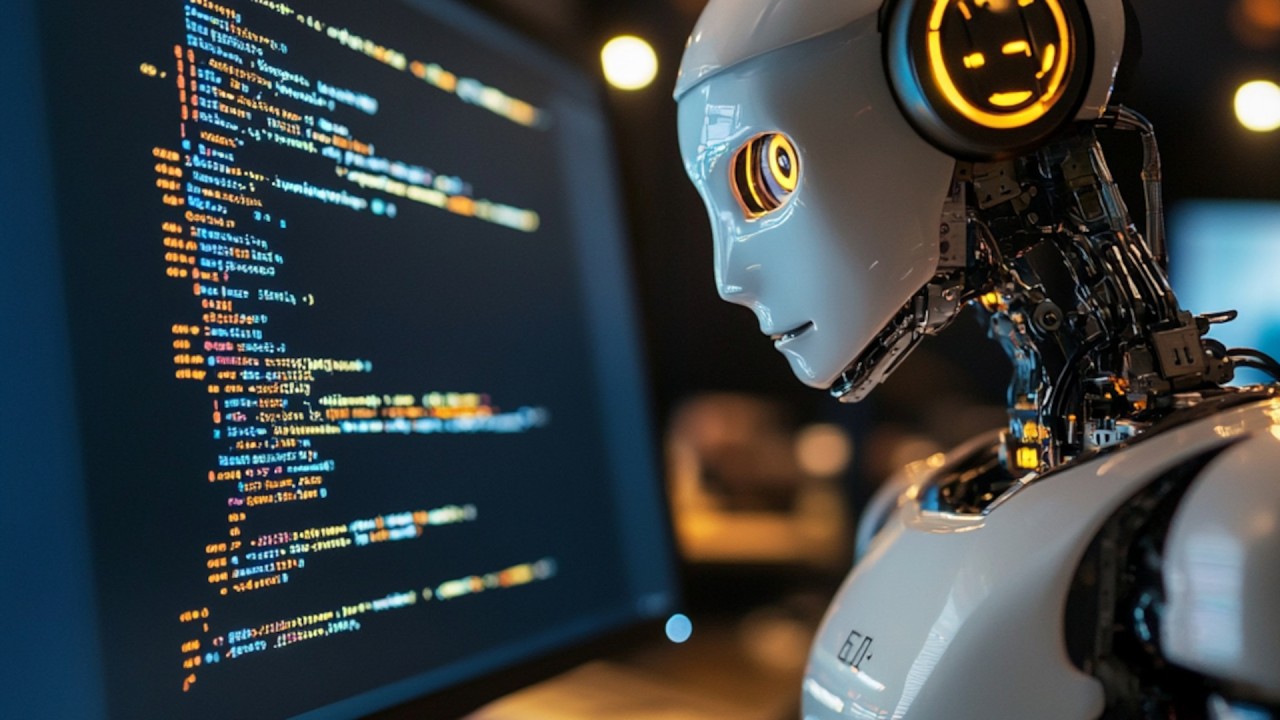The video explains that while AI is increasingly assisting in code generation and boosting productivity, it is unlikely to replace programmers entirely, as deep skill and creativity remain essential. It warns that overreliance on AI can lead to technical debt, buggy software, and security vulnerabilities, highlighting the continued importance of human expertise and craftsmanship in software development.
The video discusses the current role of Artificial Intelligence (AI) in software development, highlighting statements from tech leaders like Mark Zuckerberg and Satya Nadella. They claim that AI is now responsible for generating a significant portion of code within companies like Meta and Microsoft, with estimates ranging from 30% to potentially 50% in the future. Despite these claims, the speaker emphasizes that AI tools are primarily enhancing productivity for competent users rather than replacing programmers entirely. The overall message is that AI is a powerful aid, but mastery and skill remain crucial in programming.
The speaker draws an analogy between modern power tools and traditional manual tools, such as hammers versus framing nailers. While power tools increase efficiency, they also require knowledge and skill to avoid mistakes and structural failures. Similarly, AI-assisted coding can boost productivity but can also lead to problematic code if misused or relied upon without understanding. The importance of deep familiarity with foundational tools and techniques remains vital, as blindly trusting AI-generated code can result in technical debt and vulnerabilities.
The video also touches on the impact of AI on big tech companies, noting recent layoffs, especially among mid-level managers, which may reflect inefficiencies or mismanagement exacerbated by overreliance on AI tools. The speaker criticizes how AI-driven development has contributed to bloated, buggy software—using Windows 11 as an example—where AI’s tendency to condense and reuse web-based information leads to inefficient and resource-heavy applications. This trend could worsen if AI continues to dominate the development process, potentially creating complex, fragile codebases.
A significant concern raised is the accumulation of technical debt and security vulnerabilities resulting from AI-generated code riddled with hallucinations or errors. The speaker suggests that fixing or auditing such code will become more costly and challenging, akin to repairing poorly installed fixtures. This scenario presents opportunities for skilled developers, especially those knowledgeable in security, to capitalize on the demand for fixing or securing AI-produced software. The analogy of fixing a poorly installed toilet underscores the importance of proper craftsmanship from the start.
Finally, the speaker reassures programmers that their creativity and mastery remain their strongest defenses against AI. While AI can assist with routine tasks and code completion, it struggles with innovation and thinking outside the box. Those who enjoy programming and aim to create novel, unique solutions will continue to thrive, as AI’s limitations become apparent when faced with originality. The message encourages programmers to focus on honing their skills and creativity, rather than fearing AI as a replacement, emphasizing that passion and expertise will keep human programmers relevant in the evolving landscape.
